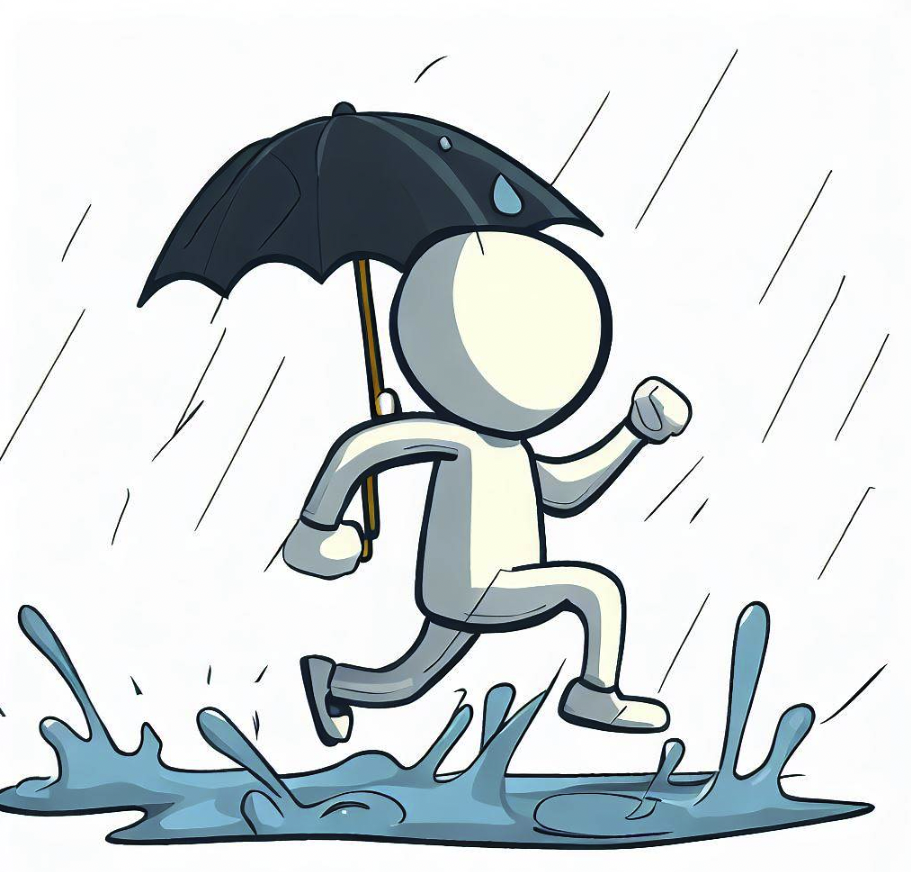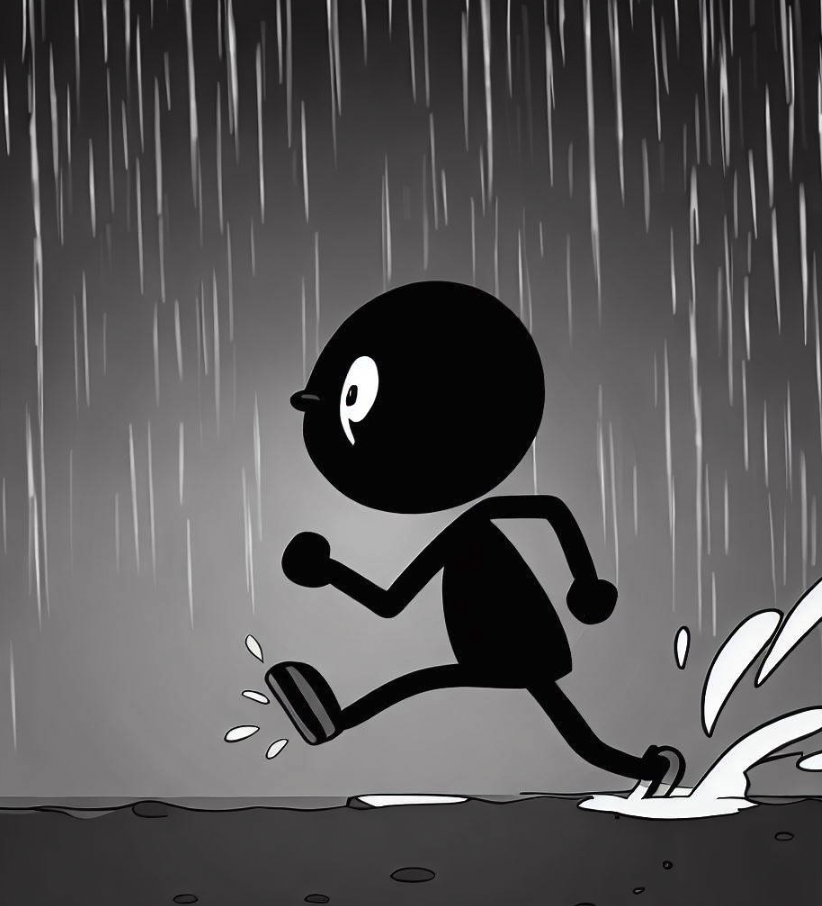The question of whether to run or walk in the rain to minimize getting wet is a classic physics problem.
Let’s break it down:
- Frontal Wetness: When you move forward, you encounter raindrops. The faster you move, the more raindrops you’ll hit from the front in a given time. This is the “frontal wetness.”
- Top Wetness: Raindrops will fall on your head and shoulders regardless of whether you’re moving or stationary. The longer you’re out in the rain, the more “top wetness” you accumulate.
Table of Contents
Walking in the Rain
If you walk, you’ll be out in the rain for a longer period, which means more “top wetness.”
However, you’ll encounter fewer raindrops from the front, so less “frontal wetness.”
Running in the Rain
If you run, you’ll be out in the rain for a shorter period, which means less “top wetness.”
But, you’ll encounter more raindrops from the front, leading to more “frontal wetness.”
The key to the answer lies in determining which type of wetness (frontal or top) contributes more to the overall wetness.

Should You WALK or RUN in the RAIN? DEBUNKED
FAQs: When It’s Raining, Should I Run to Avoid Getting Wet or Just Walk?
Why is this question significant?
This question is often posed because people want to minimize their exposure to rain and stay as dry as possible when caught without an umbrella or raincoat.
What does science say about running vs. walking in the rain?
Scientifically speaking, when you run, you collide with more raindrops in a shorter amount of time compared to walking.
However, you also spend less time exposed to the rain.
The consensus is that running will generally get you less wet than walking, especially over longer distances.
Does the intensity of the rain affect whether I should run or walk?
Yes, the intensity of the rain can play a role. In light drizzles, the difference between running and walking might be negligible.
However, in heavier rain, running might be more advantageous in keeping you drier.
What about the distance I need to cover? Does that matter?
For shorter distances, the difference in wetness between running and walking might not be very noticeable.
But for longer distances, running can significantly reduce the amount of rain you’re exposed to.
Are there any health considerations to take into account?
Yes. If you’re not accustomed to running or if you have certain health conditions, suddenly sprinting can be strenuous.
It’s essential to consider your physical capabilities and any potential risks before deciding to run.
What if I’m carrying items or wearing certain types of clothing?
Carrying items, especially if they’re not waterproof, can make them more susceptible to getting wet if you run.
Additionally, certain types of clothing can become heavier and more uncomfortable when wet, which might influence your decision to run or walk.
Are there any other factors I should consider when deciding?
Consider the environment. For instance, running on slippery surfaces can increase the risk of falling. Also, if you’re in an urban area, running might cause you to sweat more, which could make you feel just as wet as the rain would.
Is there a middle ground between running and walking?
A brisk walk or a light jog can be a good middle ground. This way, you’re moving faster than a walk but not exerting as much energy as a full run, reducing some of the risks associated with both extremes.
What’s the bottom line?
The decision to run or walk in the rain ultimately depends on various factors, including the rain’s intensity, the distance to be covered, your health, and what you’re carrying or wearing.
While running might generally keep you drier, it’s essential to weigh all considerations before making a decision.
Are there any tools or apps that can help me decide?
There are weather apps that can predict rain intensity and duration, which might help you make an informed decision.
However, personal judgment based on the situation and your comfort level is always crucial.
Conclusion – Walk or Run in the Rain?
For most scenarios, running will get you less wet than walking.
This is because the “top wetness” tends to be a more significant factor than the “frontal wetness.”
By running, you reduce the time you’re exposed to the rain, which reduces the “top wetness” you accumulate.
The increased “frontal wetness” from running is usually not enough to offset the reduced “top wetness.”
However, there are some caveats:
- If you’re running so fast that you’re splashing yourself or running into large amounts of sideways rain, the benefits might be reduced.
- The answer might vary based on the intensity and angle of the rain.
In general, if you want to minimize wetness, it’s typically better to run than to walk.
But always be cautious of slippery surfaces when running in the rain.
Related


